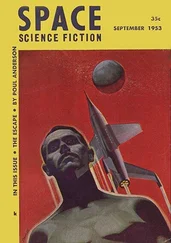The general seated himself. Mr. Ramsey, no doubt still ignorant of the old man’s identity, assisted with the chair but showed no particular deference. Mr. Tagomi hesitantly took a chair facing.
“We loiter,” the general said. “Regrettably but unavoidably.”
“True,” Mr. Tagomi said.
Ten minutes passed. Neither man spoke.
“Excuse me, sir,” Mr. Ramsey said at last, fidgeting. “I will depart unless needed.”
Mr. Tagomi nodded, and Mr. Ramsey departed.
“Tea, General?” Mr. Tagomi said.
“No, sir.”“
“Sir,” Mr. Tagomi said, “I admit to fear. I sense in this encounter something terrible.”
The general inclined his head.
“Mr. Baynes, whom I have met,” Mr. Tagomisaid, “and entertained in my home, declares himself a Swede. Yet perusal persuades one that he is in fact a highly placed German of some sort. I say this because—”
“Please continue.”
“Thank you. General, his agitation regarding this meeting causes me to infer a connection with the political upheavals in the Reich.” Mr. Tagomi did not mention another fact: his awareness of the general’s failure to appear at the time anticipated.
The general said, “Sir, now you are fishing. Not informing.” His gray eyes twinkled in fatherly manner. No malice, there.
Mr. Tagomi accepted the rebuke. “Sir, is my presence in this meeting merely a formality to baffle the Nazi snoops?”
“Naturally,” the general said, “we are interested in maintaining a certain fiction. Mr. Baynes is representative for Tor-Am industries of Stockholm, purely businessman. And I am Shinjiro Yatabe.”
Mr. Tagomi thought, And I am Tagomi. That part is so.
“No doubt the Nazis have scrutinized Mr. Baynes’ comings and goings,” the general said. He rested his hands on his knees, sitting bolt upright… as if, Mr. Tagomi thought, he were sniffing far-off beef tea odor. “But to demolish the fiction they must resort to legalities. That is the genuine purpose; not to deceive, but to require the formalities in case of exposure. You see for instance that to apprehend Mr. Baynes they must do more than merely shoot him down… which they could do, were he to travel as—well, travel without this verbal umbrella.”
“I see,” Mr. Tagomi said. Sounds like a game, he decided. But they know the Nazi mentality. So I suppose it is of use.
The desk intercom buzzed. Mr. Ramsey’s voice. “Sir, Mr. Baynes is here. Shall I send him on in?”
“Yes!” Mr. Tagomi cried.
The door opened and Mr. Baynes, sleekly dressed, his clothes all quite pressed and masterfully tailored, his features composed, appeared.
General Tedeki rose to face him. Mr. Tagomi also rose. All three men bowed.
“Sir,” Mr. Baynes said to the general, “I am Captain R. Wegener of the Reichs Naval Counter-Intelligence. As understood, I represent no one but myself and certain private unnamed individuals, no departments or bureaus of the Reich Government of any sort.”
The general said, “Herr Wegener, I understand that you in no way officially allege representation of any branch of the Reich Government. I am here as an unofficial private party who by virtue of former position with the Imperial Army can be said to have access to circles in Tokyo who desire to hear whatever you have to say.”
Weird discourse, Mr. Tagomi thought. But not unpleasant. Certain near-musical quality to it. Refreshing relief, in fact.
They sat down.
“Without preamble,” Mr. Baynes said, “I would like to inform you and those you have access to that there is in advance stage in the Reich a program called Lowenzahn. Dandelion.”
“Yes,” the general said, nodding as if he had heard this before; but, Mr. Tagomi thought, he seemed quite eager for Mr. Baynes to go on.
“Dandelion,” Mr. Baynes said, “consists of an incident on the border between the Rocky Mountain States and the United States.”
The general nodded, smiling slightly.
“U.S. troops will be attacked and will retaliate by crossing the border and engaging the regular RMS troops stationed nearby. The U.S. troops have detailed maps showing Midwest army installations. This is step one. Step two consists of a declaration by Germany regarding the conflict. A volunteer detachment of Wehrmacht paratroopers will be sent to aid the U.S. However, this is further camouflage.”
“Yes,” the general said, listening.
“The basic purpose of Operation Dandelion,” Mr. Baynes said, “is an enormous nuclear attack on the Home Islands, without advance warning of any kind.” He was silent then.
“With purpose of wiping out Royal Family, Home Defense Army, most of Imperial Navy, civil population, industries, resources,” General Tedeki said. “Leaving overseas possessions for absorption by the Reich.”
Mr. Baynes said nothing.
The general said, “What else?”
Mr. Baynes seemed at a loss.
“The date, sir,” the general said.
“All changed,” Mr. Baynes said. “Due to the death of M. Bormann. At least, I presume. I am not in contact with the Abwehr now.”
Presently the general said, “Go on, Herr Wegener.”
“What we recommend is that the Japanese Government enter into the Reich’s domestic situation. Or at least, that was what I came here to recommend. Certain groups in the Reich favor Operation Dandelion; certain others do not. It was hoped that those opposing it could come to power upon the death of Chancellor Bormann.”
“But while you were here,” the general said, “Herr Bormann died and the political situation took its own solution. Doctor Goebbels is now Reichs Chancellor. The upheaval is over.” He paused. “How does that faction view Operation Dandelion?”
Mr. Baynes said, “Doctor Goebbels is an advocate of Dandelion.”
Unnoticed by them, Mr. Tagomi closed his eyes.
“Who stands opposed?” General Tedeki asked.
Mr. Baynes’ voice came to Mr. Tagomi. “SS General Heydrich.”
“I am taken by surprise,” General Tedeki said. “I am dubious. Is this legitimate information or only a viewpoint which you and your colleagues hold?”
Mr. Baynes said, “Administration of the East—that is, the area now held by Japan—would be by the Foreign Office. Rosenberg’s people, working directly with the Chancery. This was a bitterly disputed issue in many sessions between the principals last year. I have photostats of notes made. The police demanded authority but were turned down. They are to manage the space colonization, Mars, Luna, Venus. That’s to be their domain. Once this division of authority was settled, the police put all their weight behind the space program and against Dandelion.”
“Rivalry,” General Tedeki said. “One group played against another. By the Leader. So he is never challenged.”
“True,” Mr. Baynes said. “That is why I was sent here, to plead for your intervention. It would still be possible to intervene; the situation is still fluid. It will be months before Doctor Goebbels can consolidate his position. He will have to break the police, possibly have Heydrich and other top SS and SD leaders executed. Once that is done—”
“We are to give support to the Sicherheitsdienst?” General Tedeki interrupted. “The most malignant portion of German society?”
Mr. Baynes said, “That is right.”
“The Emperor,” General Tedeki said, “would never tolerate that policy. He regards the Reichs elite corps, wherever the black uniform is worn, the death’s head, the Castle System—all, to him, is evil.”
Evil, Mr. Tagomi thought. Yes, it is. Are we to assist it in gaining power, in order to save our lives? Is that the paradox of our earthly situation?
I cannot face this dilemma, Mr. Tagomi said to himself. That man should have to act in such moral ambiguity. There is no Way in this; all is muddled. All chaos of light and dark, shadow and substance.
Читать дальше










